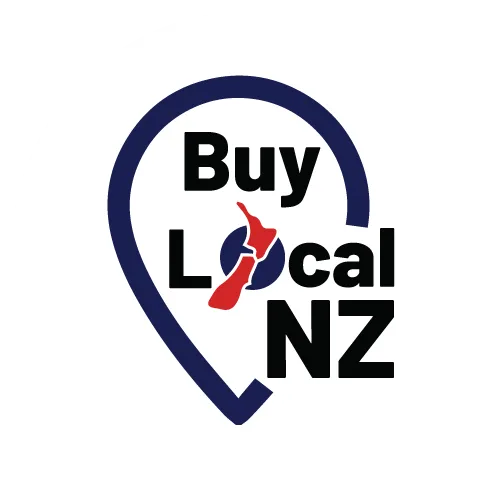
What's The Best Review Management Platform For Businesses?
You'll find the most thorough review management solutions in Birdeye, Podium, and Grade.us, each offering robust features for monitoring and responding to customer feedback. These platforms provide essential tools like sentiment analysis, multi-location management, and integration capabilities with popular CRM systems. While all three excel at reputation management, your specific business needs and budget will determine which platform delivers the best value. Explore each option's unique strengths to make an informed choice.
Key Points
- Grade.us offers comprehensive review monitoring, competitive analysis, and seamless integration with major review platforms for businesses of all sizes.
- Podium excels in customer interaction management, offering automated review requests and real-time messaging capabilities across multiple platforms.
- BirdEye provides AI-powered sentiment analysis, detailed reporting, and multi-location management features with excellent mobile responsiveness.
- Reputation.com delivers enterprise-level review management with advanced analytics, competitor tracking, and robust API integration capabilities.
- ReviewTrackers specialises in simplified review collection, customisable reporting, and reliable customer support at competitive price points.
Why Review Management Software Is Essential Today
While businesses once relied on word-of-mouth marketing, today's digital landscape demands a more sophisticated approach to managing online reviews. Your brand's reputation now lives and breathes in the digital arena, where customer feedback can make or break your success within hours.
Review management software empowers you to take control of your online presence. You'll capture real-time feedback, respond swiftly to customer concerns, and harness positive reviews to fuel growth. Instead of being at the mercy of scattered reviews across multiple platforms, you can centralise your reputation management efforts and make data-driven decisions.
Don't let your competition outpace you in the digital trust economy. Modern review management tools give you the freedom to shape your narrative and build authentic connections with your audience.
Top Features To Look For In Review Platforms
When selecting a review management platform, you'll want robust response analytics tools that reveal customer sentiment trends and highlight areas needing attention.
You'll benefit from features that track response times, measure customer satisfaction levels, and generate detailed performance reports.
Look for reputation control features that alert you to negative reviews, enable quick responses, and help maintain your brand's online presence across multiple review sites.
Response Analytics Tools
Since analysing customer feedback helps shape effective business strategies, response analytics tools are essential features in any review management platform.
You'll want sophisticated analytics capabilities that transform raw feedback into actionable insights, empowering you to make data-driven decisions that propel your business forward.
Look for these crucial analytics features:
- Sentiment analysis that automatically categorises reviews as positive, negative, or neutral, helping you quickly identify trends and areas needing improvement.
- Custom reporting tools that let you analyse feedback across different locations, products, or time periods.
- Word cloud generators and keyword tracking that highlight common phrases and topics in customer reviews, revealing patterns you might otherwise miss.
Choose a platform that turns complex data into clear, meaningful insights you can act on immediately.
Reputation Control Features
A robust review management platform should include extensive reputation control features that help you monitor, protect, and enhance your brand's online presence.
Look for tools that let you track mentions across multiple platforms, set up instant alerts for negative reviews, and quickly respond to customer feedback.
Choose a platform that offers automated sentiment analysis to identify potential reputation threats before they escalate.
You'll want customisable dashboard controls that give you the power to manage your brand narrative effectively.
The best platforms include features like review removal assistance, competitor tracking, and the ability to highlight positive reviews across your marketing channels.
Make sure your chosen platform provides crisis management tools and enables you to maintain consistent brand messaging across all review sites and social platforms.
Comparing Popular Review Management Solutions
When you're ready to select a review management platform, comparing solutions side-by-side with a feature matrix will help you evaluate core capabilities like review monitoring, response tools, and analytics.
You'll want to examine pricing structures carefully, from basic tiers to enterprise plans, ensuring the cost aligns with your business needs and expected review volume.
Beyond basic features, check each platform's integration options and API functionality to confirm it'll work seamlessly with your existing tech stack and business workflows.
Key Features Comparison Matrix
To help you make an informed decision about review management platforms, we've created a thorough feature comparison matrix of leading solutions.
You'll find exactly what each platform offers, empowering you to break free from the confusion of endless research.
- Core Features: Compare essential functions like automated review collection, sentiment analysis, and competitor monitoring across platforms like Birdeye, Podium, and Grade.us.
- Integration Capabilities: See which platforms seamlessly connect with your existing tech stack, including CRM systems, social media channels, and business management tools.
- Analytics & Reporting: Discover the depth of insights each platform provides, from basic metrics to advanced AI-powered trend analysis and customisable dashboards that give you complete control over your data.
Pricing Plans And Options
Understanding pricing structures for review management platforms can greatly impact your business's bottom line. Most platforms offer tiered pricing based on your business size and needs, typically ranging from $50 to $500 monthly.
Entry-level plans usually include basic review monitoring and response tools for single locations. Mid-tier packages add features like competitor analysis, advanced reporting, and multi-location management.
Premium tiers activate AI-powered sentiment analysis, white-label options, and API access. Many providers offer flexible monthly subscriptions without long-term commitments, letting you scale as needed.
Some platforms charge per location or user, while others offer unlimited usage within each tier. Look for transparent pricing that includes all essential features without hidden fees, and always request a free trial to test the platform's value proposition.
Integration And API Support
Beyond pricing considerations, the ability to seamlessly connect your review management platform with existing business systems can significantly boost operational efficiency.
Leading platforms offer robust integration capabilities and API support that let you take control of your review management workflow.
- API access enables custom development, allowing you to build unique solutions that match your business needs, from automated review collection to personalised reporting dashboards.
- Pre-built integrations with popular CRM systems, including Salesforce and HubSpot, streamline customer data synchronisation and eliminate manual data entry.
- Webhook support facilitates real-time notifications and automated actions when new reviews appear, empowering you to respond quickly and maintain strong customer relationships.
Choose a platform that offers the integration flexibility you need to create a seamless, automated review management ecosystem.
Cost Analysis Of Leading Review Platforms
A thorough analysis of review management platforms reveals significant price variations across leading providers, with costs typically ranging from $50 to $500 per month.
You'll find that Birdeye and Podium sit at the premium end, offering extensive features but requiring substantial investment. Grade.us and ReviewTrackers provide mid-range options with balanced functionality.
For budget-conscious businesses, platforms like Broadly and BrightLocal deliver essential review management tools at more accessible price points.
Most providers offer tiered pricing based on location count and feature access. You'll want to reflect on the value-to-cost ratio, focusing on features that directly impact your review generation and management needs.
Many platforms also offer free trials, letting you test their capabilities before committing to a subscription.
Integration Capabilities And Technical Requirements
When selecting a review management platform, you'll need to evaluate its ability to integrate with your existing tech stack and business systems.
The best platforms offer seamless connectivity with your CRM, marketing tools, and business intelligence software, empowering you to maintain control over your digital ecosystem.
- API accessibility is essential - look for platforms that provide robust APIs, webhooks, and custom integration options to break free from technological constraints.
- Check compatibility with popular business tools like Salesforce, HubSpot, and Zendesk to guarantee smooth data flow and automation capabilities.
- Consider the platform's mobile responsiveness, browser compatibility, and server requirements to verify peak performance across your organisation's devices.
Choose a platform that aligns with your technical infrastructure while offering the flexibility to scale and adapt as your business evolves.
User Experience And Platform Interface
The best review management platforms prioritise intuitive interfaces that streamline daily operations for your team.
You'll want a platform that offers a clean dashboard where you can quickly scan review metrics, respond to feedback, and generate reports without struggling through complex menus.
Look for customisable views that let you organise reviews by source, sentiment, or urgency. The interface should empower you to take swift action with one-click responses and bulk management features. Your team shouldn't need extensive training to navigate the platform - if they do, it's probably too complicated.
Modern platforms offer mobile responsiveness, allowing you to manage reviews on any device.
The most liberating interfaces give you keyboard shortcuts, automated workflows, and visual analytics that help you make faster, data-driven decisions.
Customer Support And Training Resources
Even the most user-friendly platform requires reliable support when questions arise or problems need solving. The best review management platforms provide thorough customer support and training resources that empower you to take control of your online reputation with confidence.
Exceptional customer support transforms a capable review management platform into an indispensable tool for maintaining your brand's online presence.
- Look for platforms offering 24/7 customer support through multiple channels, including live chat, phone, and email, guaranteeing you're never left stranded when urgent issues emerge.
- Seek out extensive knowledge bases and video tutorials that allow you to learn at your own pace and become a platform expert without depending on constant support.
- Choose platforms that provide regular training webinars and one-on-one onboarding sessions, helping you master advanced features and stay updated on the latest reputation management strategies.
These support elements guarantee you'll maximise your platform's potential while maintaining autonomy in managing your reviews.
Security And Compliance Considerations
Protecting customer data and maintaining regulatory compliance should be top priorities when selecting a review management platform. Look for solutions that offer robust encryption, secure data storage, and regular security updates to safeguard sensitive information.
Your platform should comply with major data protection regulations like GDPR, CCPA, and industry-specific standards. Verify it provides features for data sovereignty, user consent management, and the right to be forgotten.
You'll want detailed audit trails and access controls to monitor who's handling customer data.
Don't compromise on security certifications - choose platforms with SOC 2 compliance and ISO 27001 certification. These standards verify that the provider follows strict security protocols and best practices to protect your business and customer information.
Real Business Success Stories With Review Management
Successful businesses across industries have leveraged review management platforms to transform their online reputation and drive growth.
When you implement the right review management strategy, you'll reveal remarkable potential for your brand's success.
Consider these game-changing results from real businesses:
- A local restaurant chain increased its average rating from 3.2 to 4.6 stars across platforms, leading to a 40% boost in new customers within six months.
- An automotive dealership transformed negative feedback into positive experiences by responding within hours, resulting in 85% more positive reviews.
- A healthcare practice doubled its patient referrals by actively managing their reviews and maintaining a 4.8-star rating on Google.
You'll empower your business to achieve similar success by taking control of your online reputation through strategic review management.
In Summary
Like choosing the perfect tool for your workshop, selecting the right review management platform is essential for your business's success. You'll want to weigh each platform's features, cost, and support against your specific needs. Whether you choose BirdEye, Podium, or another solution, you're investing in your company's reputation and customer relationships - the lifeblood of your digital presence.

